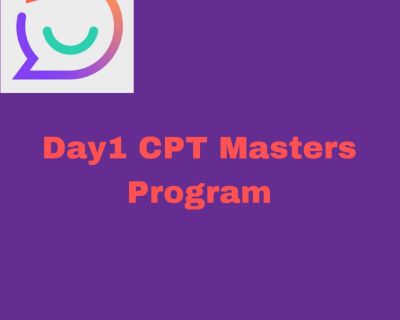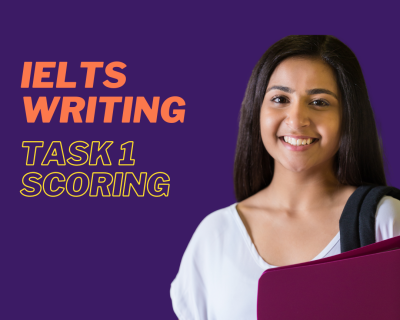Fluency is a crucial component of the IELTS Speaking test. It’s essential to speak smoothly and coherently to achieve a high score in this section of the test. In this article, we will provide practical tips and strategies to improve your fluency in English for the test.
Additionally, we will include relevant internal links to further enhance your understanding and preparation for the test.
1. Understanding Fluency and its Importance in the Test
Fluency refers to your ability to express your thoughts and ideas smoothly, without excessive pauses, hesitations, or self-corrections. In the official format of the Test, fluency is one of the four criteria on which your performance is assessed, alongside pronunciation, lexical resource, and grammatical range and accuracy.
A high level of fluency demonstrates your confidence and competence in English, which is crucial for achieving a good score in the speaking test.
By working on your fluency, you’ll be better prepared to tackle the various tasks in the test and communicate your ideas effectively.
2. Strategies for Developing Fluency
Below are several practical strategies to help you improve your fluency in English for the Test.
Expand Your Vocabulary
Having a wide range of vocabulary at your disposal any time enables you to express your thoughts more effectively and with a greater degree of accuracy.
Read widely and engage in various listening activities to expose yourself to new words and phrases. Our article on understanding and using the right vocabulary in the Test provides valuable insights on expanding your vocabulary and using it effectively.
A good idea would also be to sign up for Word of the Day newsletters form reputes sources. Merriam-Webster is our most preferred one.
Speak Regularly
Practice makes perfect, and this is especially true for developing fluency. Speak regularly with language partners, tutors, or even by recording yourself. The more amount of practice you are able to put in, the faster the more comfortable you’ll become with expressing your thoughts in English.
Our guide on tips for practicing IELTS Speaking on your own offers practical advice on how to practice effectively by yourself.
Improve Your Listening Skills
Good listening skills are essential for improving your fluency. By listening to native speakers, you can learn the natural rhythm, intonation, and stress patterns of English. Additionally, you can also pick up new words, usage variants and expressions, as well as going a long way in improving your pronunciation.
Check out our article on [tips for improving your listening skills to help with the Test for more advice on enhancing your listening abilities.
Practice Paraphrasing
Paraphrasing is the ability to restate information using different words without changing the original meaning. This skill is crucial for the test, as it demonstrates your lexical flexibility and helps you avoid repetition.
Practicing paraphrasing can help you become more fluent by allowing you to express the same idea in various ways. To develop this skill, try summarising articles, podcasts, or videos in your own words.
Use Linking Words and Phrases
Linking words and phrases help you connect your ideas and maintain coherence in your speech. They enable you to transition smoothly between different points, making your speech more fluent and easier to understand.
Examples of linking words and phrases include “however,” “in addition,” “on the other hand,” and “as a result.” Read our article on how to use linking words and phrases effectively in the Test for more guidance.
Work on Your Pronunciation
Clear and accurate pronunciation is essential for effective communication. Mispronunciations can make your speech difficult to understand and hinder your fluency. Dedicate time to work on your pronunciation by focusing on individual sounds, intonation, and stress patterns.
Our article on how to improve your pronunciation for the Test provides practical tips and resources to help you with this aspect of fluency.
Improve Your Grammar
While perfect grammar is not a requirement for fluency, having a good grasp of English grammar can significantly enhance your ability to express your ideas clearly and coherently.
Work on improving your grammatical range and accuracy by learning and practicing different structures and tenses. For more guidance, read our article on tips for improving your grammar for the Test.
3. Additional Tips and Resources for Improving Fluency
- Mock tests: Taking mock Tests can help you become more familiar with the test format, identify areas for improvement, and track your progress.
- Study plan: Create a study plan tailored to your needs and goals, allocating time for focused practice on fluency development.
- Online resources: Utilize online resources for Test practice, including video lessons, practice exercises, and podcasts.
- IELTS preparation courses: Enroll in an IELTS preparation course to receive structured guidance and feedback from experienced instructors.
- IELTS tutor: Work with an IELTS tutor who can provide personalized feedback and support to help you improve your fluency.
Improving your fluency in English for the test may seem challenging, but with consistent practice and the right strategies, you can make significant progress. Remember to expand your vocabulary, speak regularly, improve your listening skills, practice paraphrasing, use linking words and phrases, work on your pronunciation, and enhance your grammar.
Additionally, take advantage of various resources and tools, such as mock tests, study plans, online resources, IELTS preparation courses, and tutors.
By applying these tips and dedicating time to focused practice, you’ll be well on your way to achieving a high level of fluency in English and increasing your chances of success in the test. Best of luck on your journey toward improved fluency and IELTS success!

















